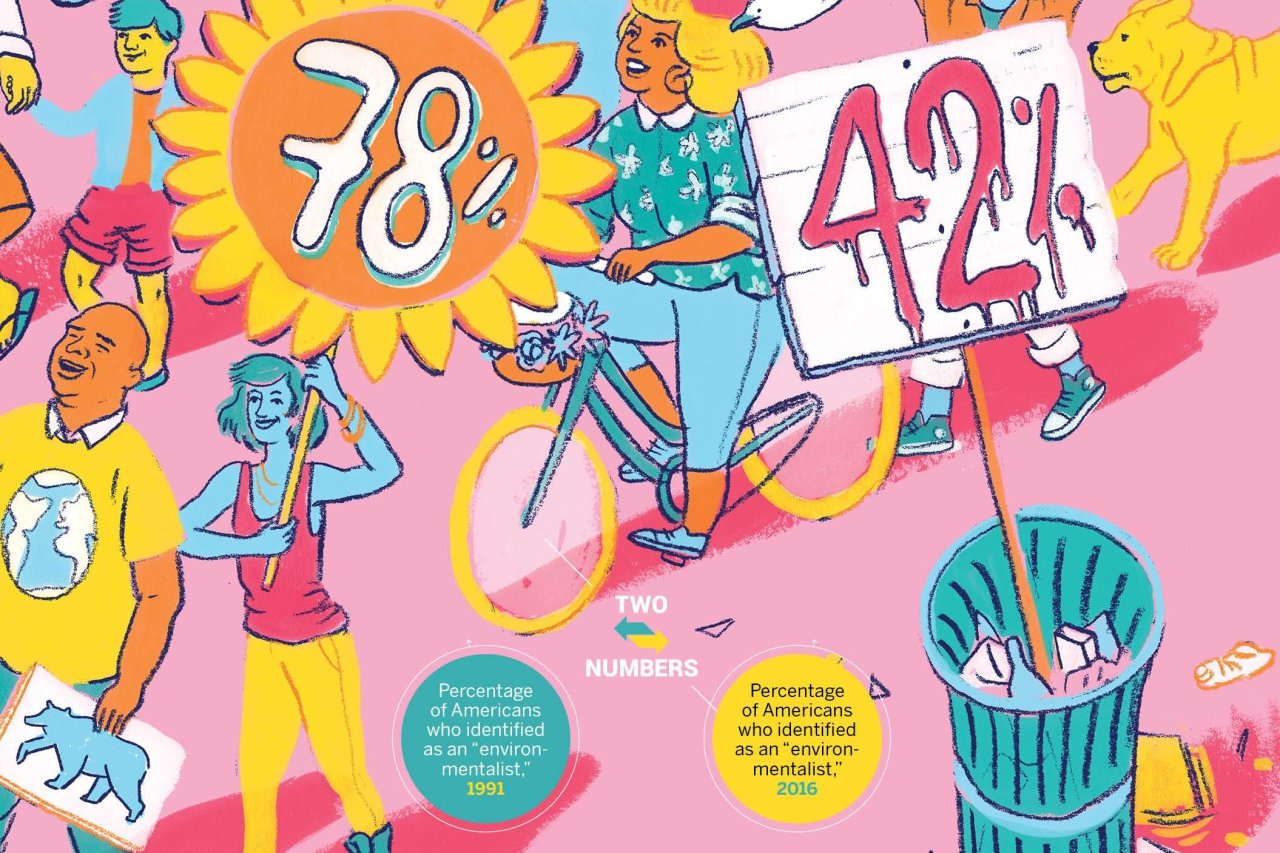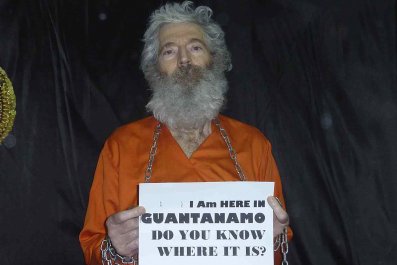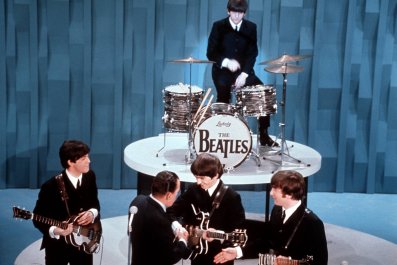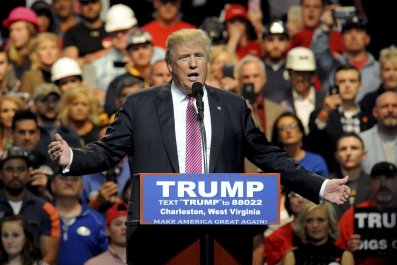The number of Americans who self-identify as "environmentalists" has sharply declined within the last 25 years. In 1991, the vast majority—78 percent—said that they were environmentalists. But in 2016, only 42 percent identified that way, according to Gallup polls conducted across time.
The reason for the dramatic shift seems to be due in large part to the politicization of the term "environmentalist"—today, the word carries negative connotations amongst some people, particularly Republicans, says Dave Metz, a partner with the polling firm FM3. In 1991, the same percentage of Republicans and Democrats said they were environmentalists; now, only 27 percent of the former identify that way, compared to 56 percent of the latter.
Particularly relevant is the issue of manmade climate change. In the 1990s, climate change was "actually a non-partisan issue, but it has now become deeply partisan," Metz says. The poll numbers show the growing divide: in a Quinnipiac University poll from December 2015, 47 percent of Republicans said they'd like the next president to support policies to combat climate change, while 91 percent of Democrats did. Importantly, however, 70 percent of independents did too, meaning overall 69 percent of all respondents favored support.
This is good news for the environmental movement, and there's more: Support for many initiatives in this area—like protections for public lands and research into clean energy—are very strong, says Grace Mcrae, polling and research director with the Sierra Club. And in many cases, that support is bipartisan. For example, 79 percent of Republicans (and 89 percent of Democrats) consider conservation of our public lands to be "patriotic," according to a 2012 poll conducted by FM3. The same poll found that 74 percent of Republicans, 77 percent of independents and 92 percent of Democrats are in favor of supporting the Land and Water Conservation Fund , which helps pay for protecting public lands.
Asking different questions reveals the importance of labels. For example, if you ask people if they are a "conservationist," 10 to 15 percent more will say yes than when asked about identifying as an "environmentalist," Metz says.
There are other areas where support for environmental initiatives has declined, however. According to Gallup, compared to 25 years ago, 12 percent fewer people are concerned about "pollution of rivers, lakes and reservoirs," and 18 percent fewer say the same about air pollution. Only 4 percent less care about pollution of drinking water, but that may change if the problem of lead pollution, as uncovered in Flint, Mich., becomes more widespread, as some evidence suggests. (It should also be said, of course, that water and air pollution have improved in many places over the last two and a half decades.)
Another issue may be that environmental protesters—or even those who commit more extreme acts such as vandalism or worse—have tarnished the term, says Bill Lowry, a researcher at Washington University in St. Louis.
But environmentalists aren't too concerned about these results. "The goal of the environmental movement isn't to make people think of themselves as environmentalists, but to get people to support initiatives to protect public lands, clean water, reduce greenhouse gas emissions, fund clean energy" and the like, Metz says. "What they call themselves... is beside the point."
Perhaps a bigger issue in the environmental arena is the salience, or conspicuousness, of people's thoughts on the topic. "When you ask people what they're concerned about, they're thinking more about other things like the economy or terrorism," Lowry says. But that doesn't mean the subject isn't important to them. Rather, environmental issues don't usually become very noticeable until a catastrophe takes place. For example, support for clean water legislation became much more prominent (and went up dramatically) after Cleveland's Cuyahoga River caught fire in 1969, the result of an oil leak and decades of chemical dumping.



















